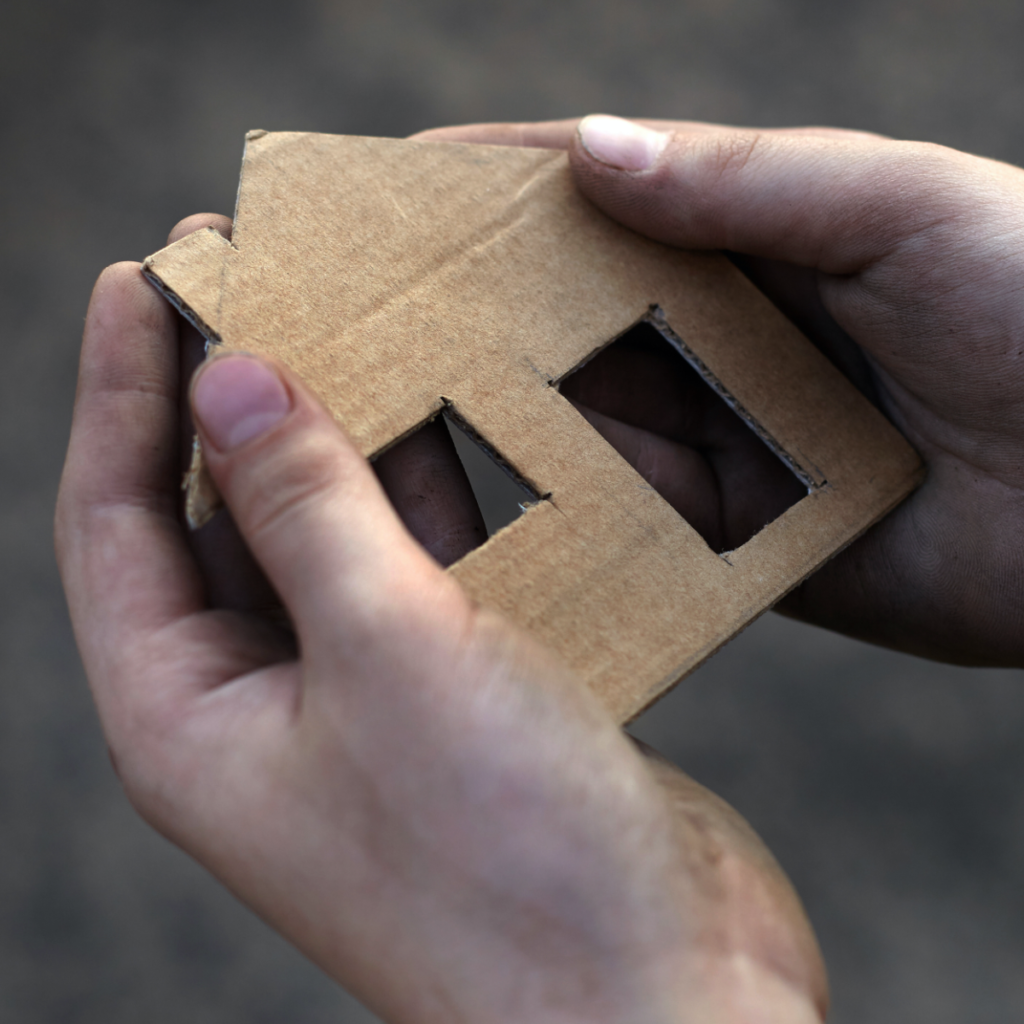Housing issues tie in closely to substance use disorders in many ways, and stable housing is often essential to recovery. But for many people who experience substance use disorders, permanent housing can be incredibly difficult to achieve. Homelessness and other issues related to housing can lead to relapses, making recovery more difficult. State-funded sober living homes and grants for transitional housing, among other types of aid, help many individuals in recovery, but more funding is still needed.
How Housing Helps With Recovery
For many individuals with addiction, substance abuse habits are tied to “people, places, and things,” which means that familiar friends, locations, habits, and more can trigger substance use, which is why recovery housing is so important. Staying in the same home or returning to the same house after inpatient treatment can increase the chances of relapsing.
Homelessness and Substance Use
Substance use disorders and the behaviors associated with addiction can be very destructive, often leading to homelessness. The use of drugs and alcohol is widespread among homeless individuals, and the lack of stable housing can become a barrier to achieving sobriety. Those experiencing homelessness likely have serious limitations in being able to afford any housing or treatment for their addictions. Grants for sober living homes help make it possible for many more individuals to find stable housing while in recovery.

Does Medicaid Pay for Sober Living?
Medicaid and Medicare are two health insurance programs funded by state and federal governments and are available to certain age groups and income brackets. Medicaid and Medicare can provide low-cost or even free health care, including drug and alcohol recovery treatments; however, the details can vary between the different programs, as well as from state to state.
While these essential insurance programs can help with the initial recovery treatments, they usually do not cover the costs of halfway houses and other transitional or sober houses. Therefore, the need is great for additional funding for sober living situations. Grants for halfway houses and other transitional housing options are critical to providing the necessary financing to those in need.
Housing Approaches to Help Those in Recovery
There are two main approaches to addressing the issue of stable housing for people in recovery, especially those who are homeless. Both approaches are extremely helpful: Sober Living Houses (SLHs) and a program called Housing First (HF).

Sober Living Houses Defined
Sober Living Houses provide a drug and alcohol-free housing environment for individuals who are attending a recovery program. This kind of recovery housing is generally found in residential, single-family neighborhoods. Support levels can easily be customized to match the level of need for the individuals staying at the residence. For example, many sober living homes are dedicated to one gender or offered during a specific level of care. Often times a long-term addiction treatment program offers lower levels of care. As an individual graduates from in-patient, residential care they may go into an outpatient program. If they do not live in the area, often times they need to find a sober living facility where they can stay while they continue their treatment program.
Generally, in this scenario, an individual only needs to live in a SLH for a month or two while they complete the full continuum of care. A typical long-term program transitions a patient from detox to inpatient and finally outpatient care over the course of a 2-3-month period. Ideally someone recovering from a severe addiction will remain in professional care for 6 months or more. However, often times insurance carriers will not approve a patient for longer than 3-6 months and because of this, SLH often see a fairly high turnover.
Sober Living Homes are monitored by a house manager 24/7. There are normally strict house rules and individuals are free to stay as long as they follow the rules, including staying clean and sober and paying the rent.
Housing First Defined

In the Housing First approach, stable housing is placed as priority number one for individuals and their families who may be struggling with homelessness in addition to addiction. Often in this type of accommodation, there are no barriers or conditions to attain the housing. Many other types of recovery homes have conditions for complete sobriety to remain in the home, but the Housing First model ensures that permanent housing is available without restrictions. The thinking behind this approach is that those who have more stable housing and voluntarily accept treatments and services are more in control of their progress with addiction recovery and mental health.
Housing First really evolved during the 90’s when large numbers of people remained homeless despite being part of a recovery program. Low income individuals might find coverage for a state program, but still not have access to safe, sober living housing. Housing First doesn’t require the individual be part of an addiction recovery program, however, only that the individual is seeking help for a supportive living situation. Advocates argued that individuals suffering from a mental health or co-occurring disorders are more vulnerable without a stable living situation.
Different than Sober Living Houses, Housing First focuses on harm reduction rather than promoting a strictly abstinence-based recovery. The HF immediate focus is on helping the individual find a safe, stable environment to live in. Some of these arrangements go beyond a residence with 24/7 monitoring. HF provides individuals apartments within the general housing market and other times housing within a centralized setting where multiple homeless individuals are housed together. Programs vary and so do the supporting services. In programs without on-site staff, case managers will visit residents on a regular basis to monitor problems and provide referrals to off-site services as needed.
Sober Living Housing Versus Housing First
Each of these models addresses the problem in different ways, and both should be supported. Recovery from addiction is not a one-size-fits-all path, and each of these approaches can be successful for different individuals in recovery. Recovery housing is needed for those who need sober living with more structure and support, while in an addiction recovery program and sometimes also while they are transitioning back into “regular” life and not returning back home after their care program is over.
The Housing First model is intended to support individuals who have a mental health disorder or a dual diagnosis, that also need somewhere to live. Candidates for Housing First might have a co-occurring disorder, but do not necessarily have to be in treatment for a drug or alcohol addiction in order to get help from the Housing First program. HF is best for those who can be more independent but need a supportive housing environment due to their mental health issues.
It’s easy to see that both types of programs are essential and should be supported. For either approach, substance abuse prevention grants can be used to help fund these programs, and this outside funding is critical to keep these programs going.
The Echo Foundation Recovery Housing Initiative
At ECHO Recovery, we understand that not everyone can afford to find safe, stable housing while undergoing an outpatient addiction recovery treatment program. Housing for these types of situations is often not covered through the treatment plan or insurance programs. Usually, outside funding is used to fill in these gaps and ensure that even those who cannot afford it themselves can have access to safe housing while in treatment.
The ECHO Recovery Foundation provides housing scholarships to those in recovery and in financial need. These scholarships provide critical support to some of our most vulnerable individuals, but we need your help to keep these programs going. You can support our mission to provide housing and recovery treatment to these individuals with a donation in any amount.

Contact us to learn more about how you can get involved or donate to the recovery movement today to help our important housing initiative. We appreciate your support.

Experienced Chief Executive Addiction Recovery and Mental Health Professional
Business professional in the Addiction Recovery and Mental Health industry for the past 26 years. Caring, compassionate and strongly motivated to make a difference in the organizations I am affiliated with and welfare of the population we serve. Currently focused on advocating, educating and developing projects leveraging evidence based, real time technology to support individuals in recovery.


